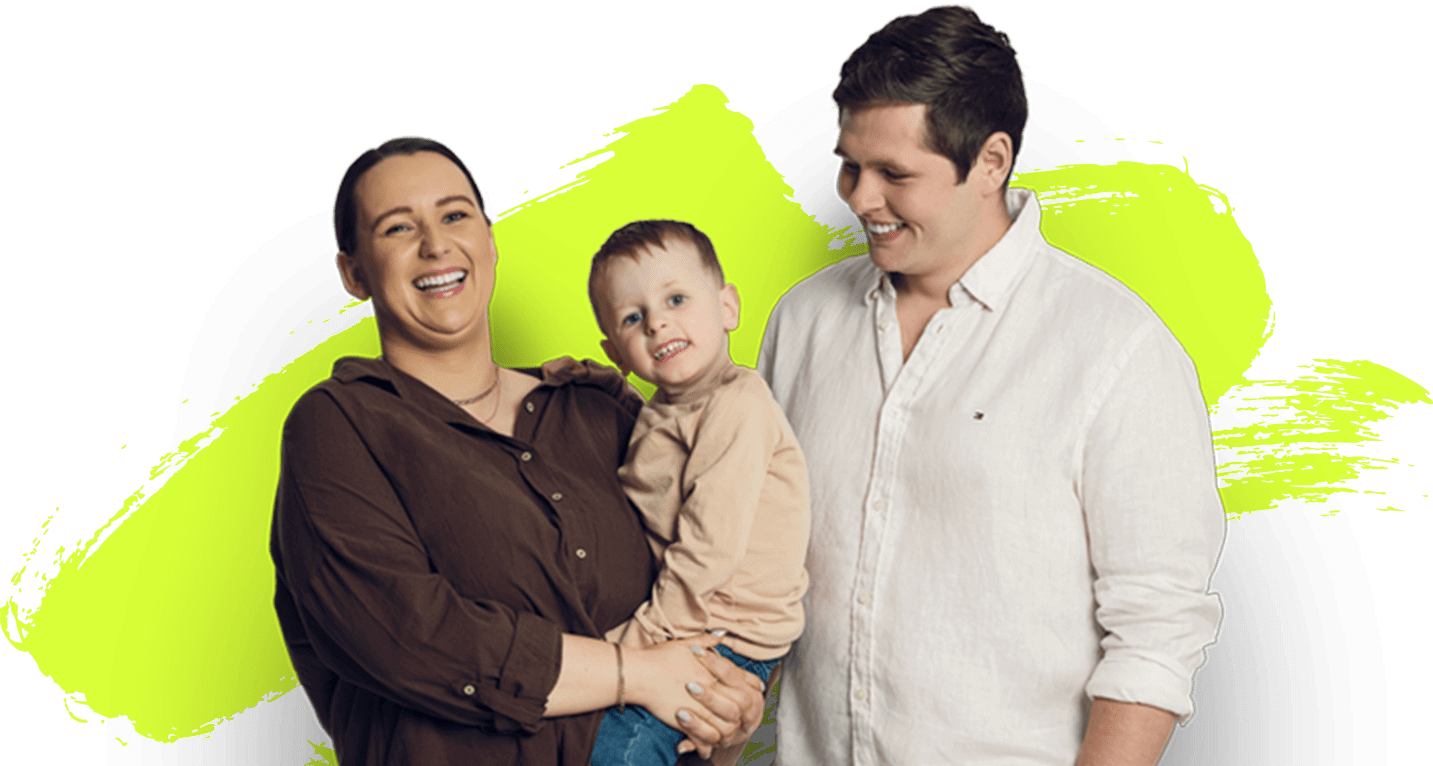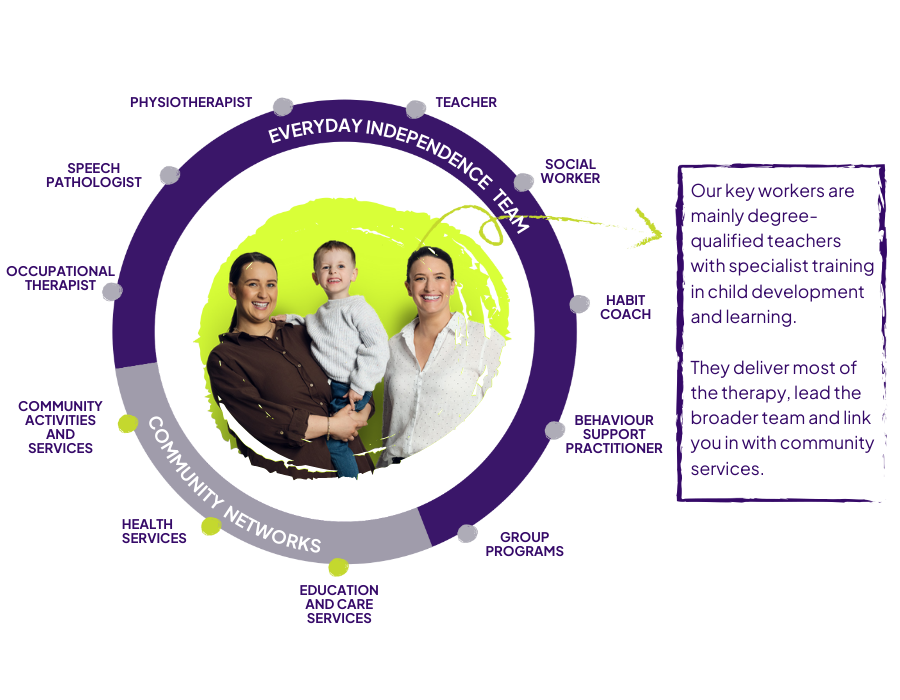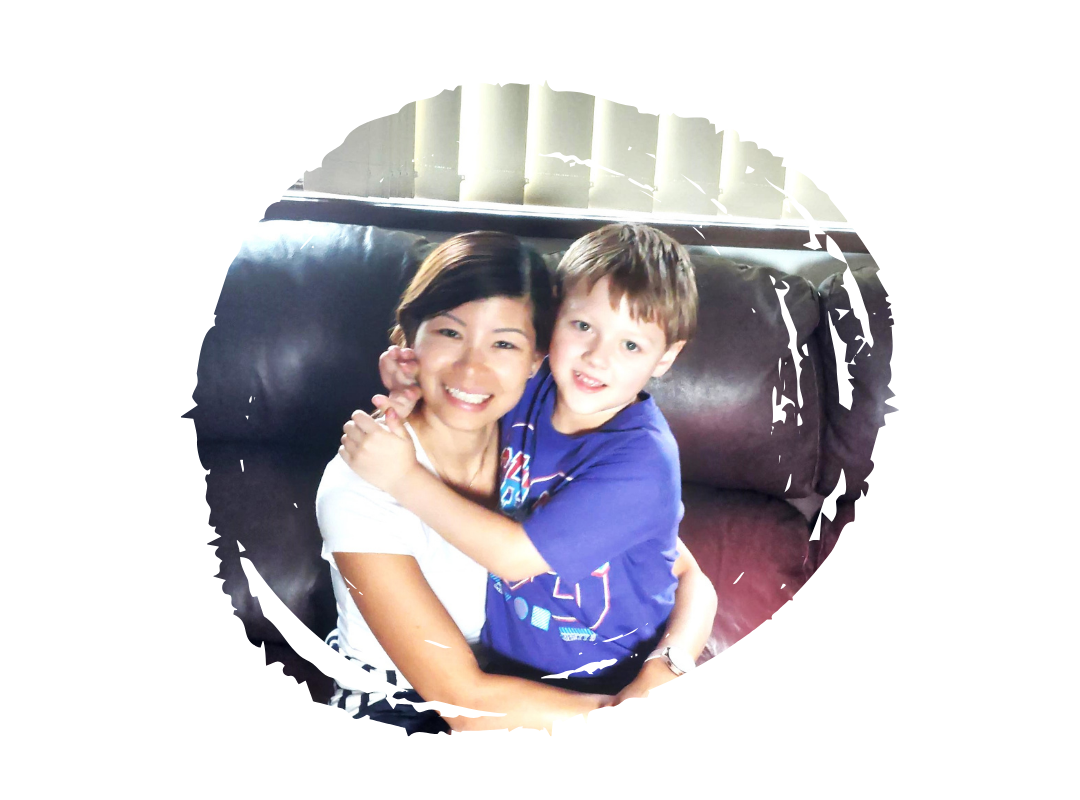Our NDIS early childhood supports, or early childhood intervention services, help children with disabilities and developmental delay aged up to nine years in Werribee to build skills wherever they’re needed—whether at daycare, school, home, or in the community.
A dedicated child and family team, led by a key worker, supports you, your child and others in their life to achieve the positive changes you want for your family.
Our key workers, mostly trained teachers, use their knowledge of child development to help your child grow socially, emotionally, physically, cognitively, and in language skills.








